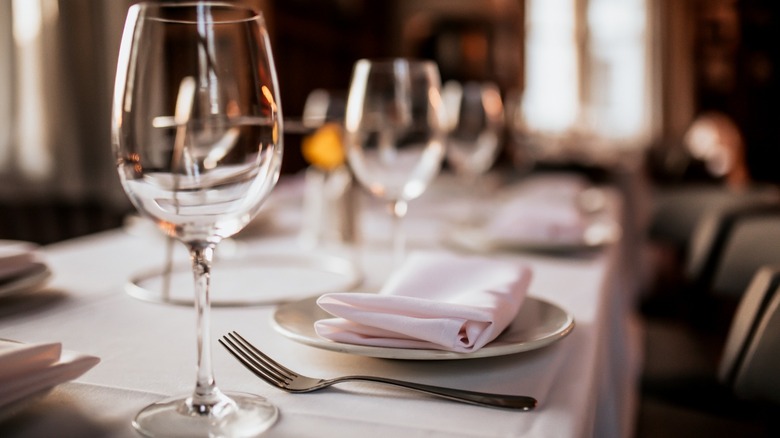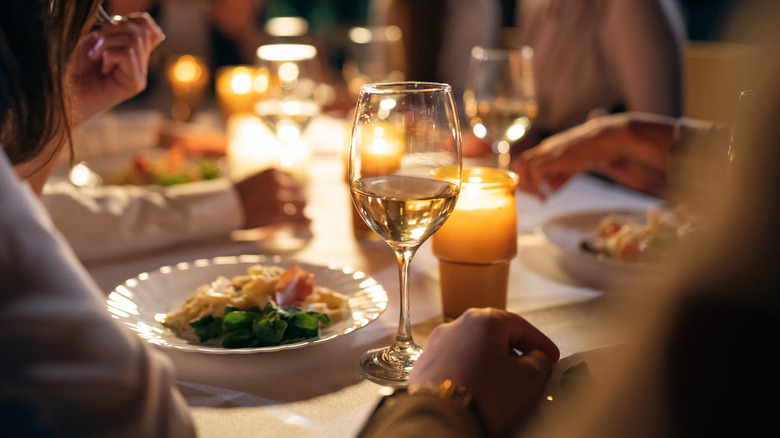Why You Shouldn't Say Bon Appétit At A Fine Dining Restaurant
In many ways, fine dining is like a role-playing experience. You dress up and engage in your best behavior for an evening of decadence in a sophisticated atmosphere. You want to slather the fancy bread with butter and go to town on it, yet you break it into small pieces and butter them individually before popping them demurely into your mouth. After all, there is dining etiquette in place, and you are expected to play along to make a good impression.
Before everyone starts eating, you may be inclined to say the customary "bon appétit." But in a fine dining establishment, some may actually frown upon this, even when it's said with a big smile and nothing but pure intentions. A salutation used to wish someone a good eating experience, "bon appétit" directly translates to "good appetite." When you go to a fast food restaurant, the sole purpose is to satiate hunger or a craving, but fine dining is all about the experience and hospitality. "When people use it, it sounds just like an invitation for a good digestion and suggests that you are so hungry that you may jump on any food that would cross your mouth," etiquette coach Marie de Tilly told The New York Times.
Digestion is a bodily function, and in the world of fine dining, a mention of bodily functions is a faux pas. As an American ex-pat living in Paris told The Guardian, "You'd never hear bon appetit at a good table."
People have mixed opinions about it
Although the salutation is French, some say that the French don't approve of "bon appétit." Explaining why one shouldn't say it, a French novelist told The Guardian that it's considered dreadfully common. "The food should speak for itself; you shouldn't need to be told to enjoy it," he added.
Others don't share this sentiment. "It's a generational thing and while strictly you're not supposed to do it, people of my generation say it all the time," French food writer Clotilde Dusoulier told The Local. According to her, dining has evolved since the olden days. "We're doing away with a lot of the old rules of etiquette," she said. Camille Chevalier-Karfis, a French language expert, told the outlet that etiquette is all about the setting. "If invited for supper with the Queen, you will not behave the same way as you do when sharing a casual meal with our friends," she said.
To frown upon the gesture may come off as snobbery to some, but in the end, it's up to you to decide. Besides, there are definitely some fine dining mistakes you could make that are considered far more atrocious.

